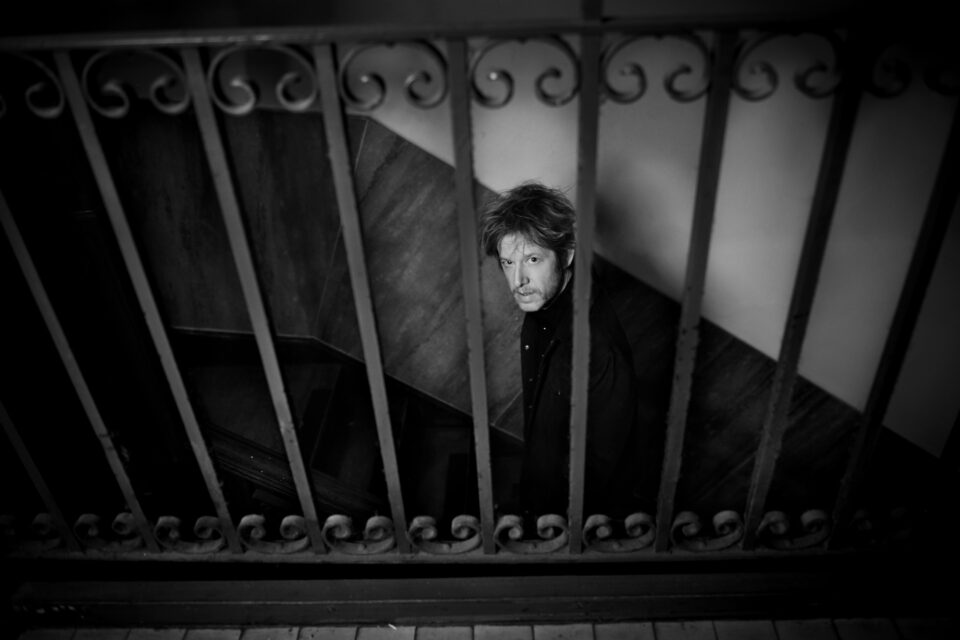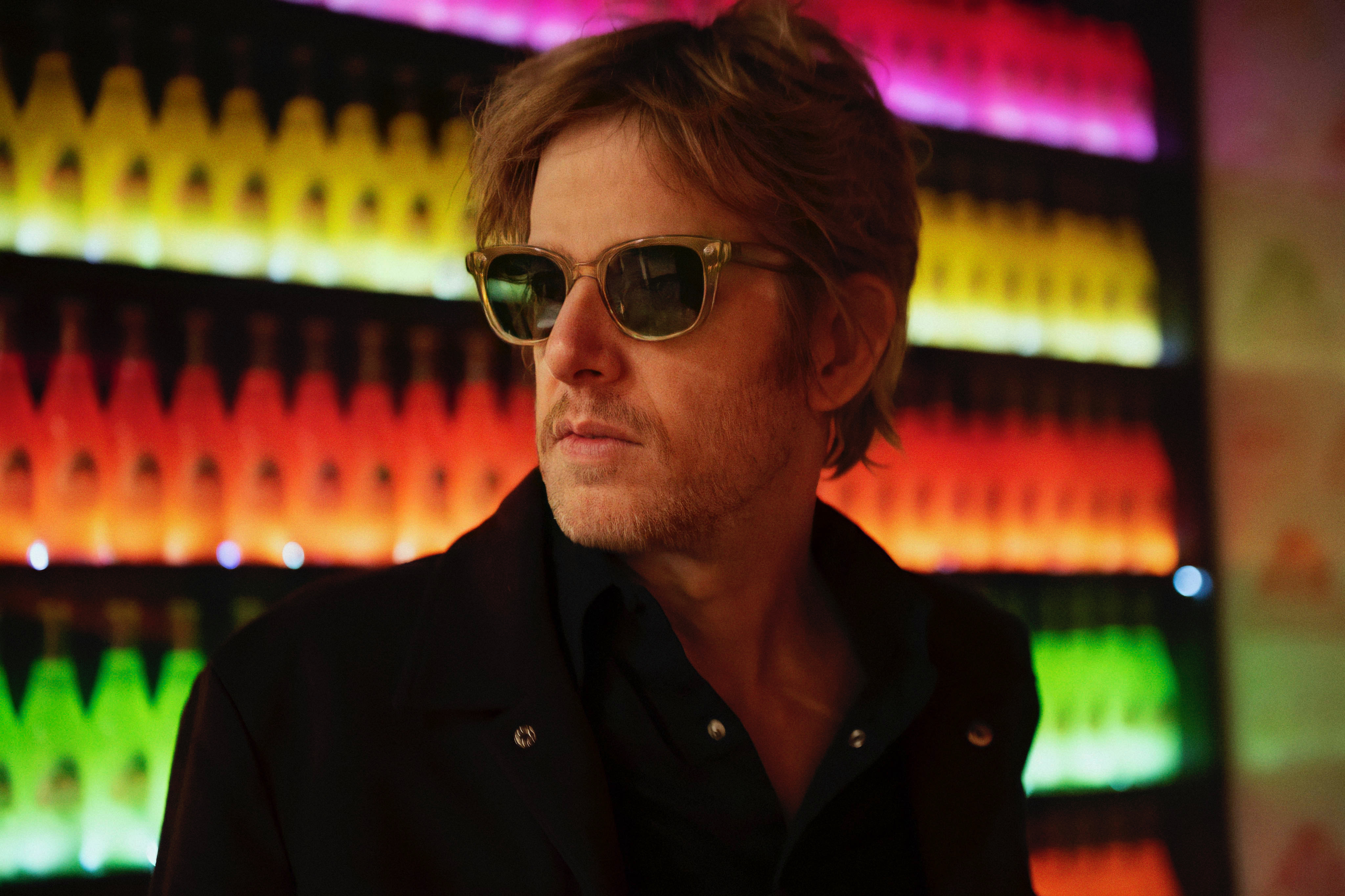Britt Daniel will also be taking over FLOOD FM for our “Hacked” series at 10 a.m., 5p.m., and 10 p.m. PST from February 7 through 11 for a guest DJ takeover featuring hand-picked tunes and commentary. Tune in here.
To Britt Daniel, listening to the radio isn’t a passive exercise. The Spoon frontman—born John Britt Daniel—recalls radio as an indispensable part of his Temple, Texas upbringing, a conduit for ideas otherwise just out of reach. Even today, Daniel consistently has the radio on in his home. “It feels like I’m connected to the outside world a bit and I can hear people talking,” Daniel tells me. “That’s very similar to how I felt when I was a kid and I had this little clock radio that was on my bed stand, and that was, like, high technology. And when I got that in my room, it was like a world opened up to me—suddenly I could hear evidence of a world outside of this room and this house, and it’s happening live.” It’s a perceived connection, he says, that “just made me a lot less lonely.”
A defining moment on Lucifer on the Sofa, Spoon’s tenth album, comes during “On the Radio.” It’s a requiem for that medium and the irrepressible sense of discovery Daniel describes, but only if a requiem can come laced with unbridled joy. Daniel, now 50, views radio as formative—less a vehicle for checking out songs than a gateway to like-minded souls and undiscovered worlds. And he isn’t ready to let go of it. “They say, ‘How come you still play that game, John Britt?’” he sings in “On the Radio.” “’Cuz I was born to it.”
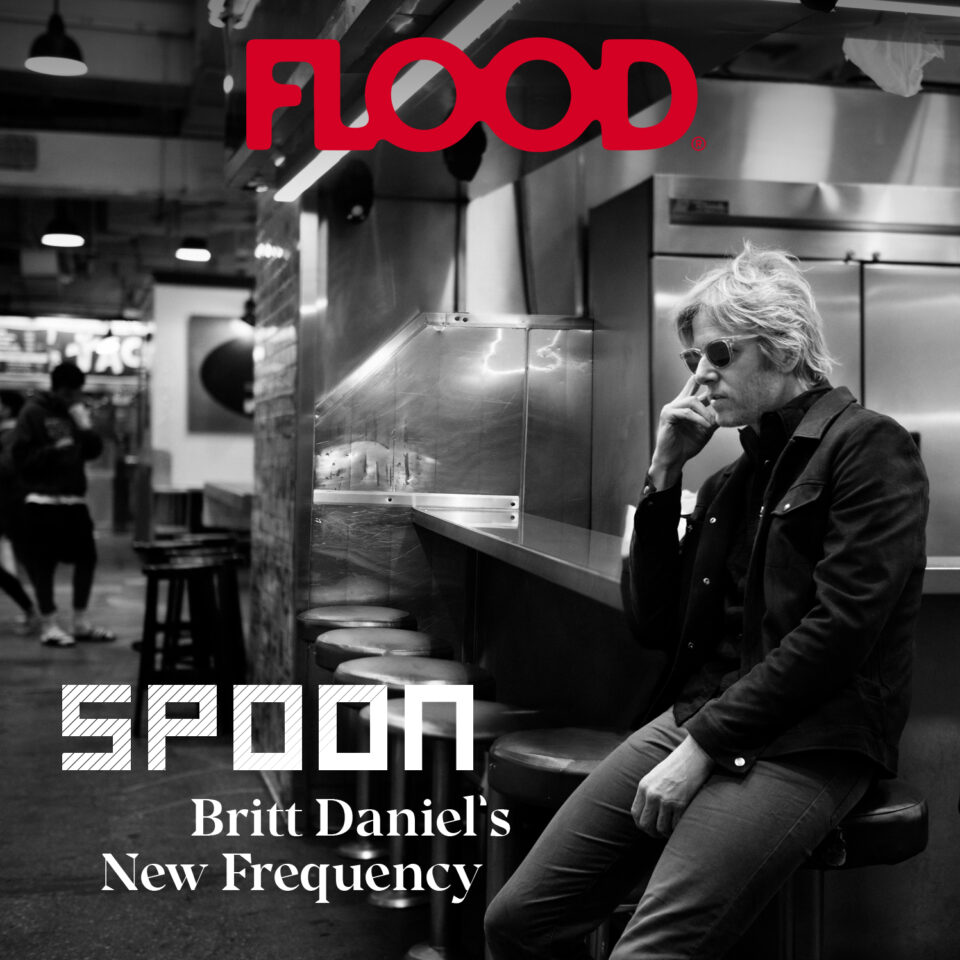
It's a mindset that sets the tone for Lucifer on the Sofa, a collection of songs alternately scorching in their intensity and striking in their intimacy. You can draw a direct line from those songs Daniel discovered on his clock radio to Lucifer’s classic rock–derived arrangements. The album marks further development of Spoon’s sound but, more than ever, its fundamentals are rooted in the most evocative hallmarks of rock’s golden age. Spoon is in constant conversation with the genre’s towering icons, but this is not an album that panders or slips into pastiche. Lucifer on the Sofa recognizes that Spoon’s swim lane and the epochal pillars of 1970s rock have never been far removed, and believes those echoes are worth leaning into.
The recording sessions came on the heels of the band’s extensive tour for Hot Thoughts, their slyly eclectic, groove-forward 2017 album. Daniel describes the tour as rewarding; the songs on that record kept evolving in a live setting, ultimately, by Daniel’s estimation, eclipsing their studio counterparts. It gave the band an itch to recapture the bristling energy of those live shows while in the studio.
“I would have to get out of my head and out of the house and I would just go walking through Austin. But it was an Austin I almost didn’t recognize, that I never thought I’d see, that was so lonely and shut down."
So Daniel moved back to Austin to record after living in LA for years; a reclamation of his roots, partly, and also an implicit admission that Spoon was ready for a change of scenery. Austin’s vibrant, big-tent music culture made it an obvious choice, specifically its seemingly bottomless supply of live shows. Daniel and his bandmates would catch a concert nearby and then head home to write, hoping to funnel the contact high of live music into something creatively fruitful. Just as crucial, the city has a character and a “funk” that entices the band; as Daniel says, Austin is the “part of Texas where all the freaks would gravitate.”
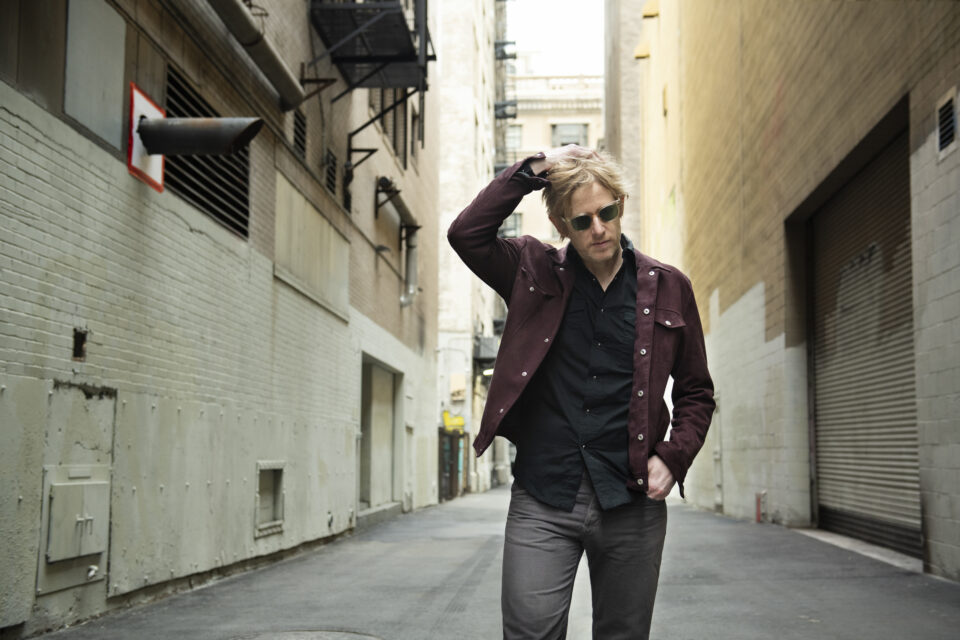
It’s a plan that paid off—at least for a while. In early 2020, the world shut down and anything with a semblance of certainty suddenly didn’t have that anymore. Despite promising initial progress, the new album’s status was now steeped in uncertainty. With time on his hands, Daniel began writing “heaps more songs,” voraciously consuming music for inspiration (he cited The New Abnormal by The Strokes and new material by Arlo Parks as formative at the start of the pandemic). He took late night walks for inspiration, hoping to find clarity amidst pervasive unease. One such walk in April 2020 served as the genesis for the isolated, internal title track, which lucidly recalls the creeping dread of the pandemic’s earliest days. “Lucifer on the Sofa” distills the struggle to avoid succumbing to our ugliest tendencies, an internal skirmish for peace when it seems most elusive. “I would have to get out of my head and out of the house and I would just go walking through Austin,” Daniel explains. “But it was an Austin I almost didn’t recognize, that I never thought I’d see, that was so lonely and shut down. I would cross the river...and walk north to downtown in the hopes that I could get some kind of vibe for what’s happening.”
Though it would be difficult to disentangle these songs from the social, political, and personal upheaval of the pandemic, the band was primarily galvanized at the prospect of making music that felt more electric and less labored over. “I mean records that bands were making, say, 1969 through 1974,” Daniel says. “You have a little bit of room to experiment in the studio, but you don’t have too much. We wanted to make a less pieced-together record and more of a live-rock-and-roll record.”
“You have a little bit of room to experiment in the studio, but you don’t have too much. We wanted to make a less pieced-together record and more of a live-rock-and-roll record.”
That meant revisiting albums from the era and connecting with them in fresh ways. “We were thinking about early Led Zeppelin records, Creedence records, even Doors records,” Daniel says. “I’ve gone through weird phases with The Doors. When I heard them in high school, I thought they were the greatest thing ever put on tape. And then I kind of moved away from them for a while and I thought, ‘Are they ridiculous?’ But now I’m coming back to where I was in high school.”
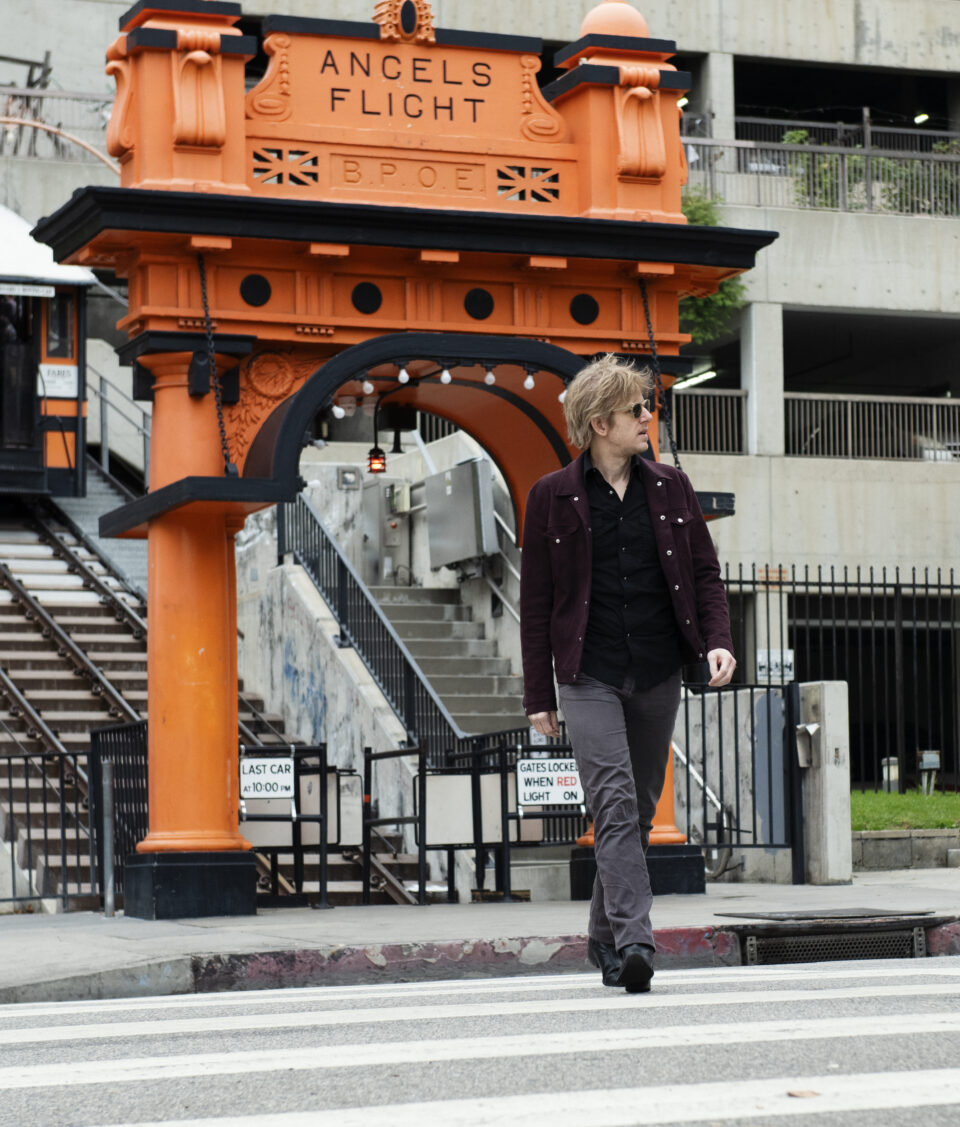
Anyone eyeing Spoon’s recent moves will be unsurprised that classic rock is an animating force. In the last year, the band has released covers of songs by Tom Petty, David Bowie, and The Beatles. These figures clearly loom large for Daniel and occupy significant space in the band’s DNA. When we speak, he’s in the process of watching The Beatles: Get Back, Peter Jackson’s epic documentary about the recording of Let It Be. Daniel says the arduous studio trial and error on display felt “reassuringly familiar,” and as a lifelong fan, marveled at the wealth of footage: “It was just fucking amazing to be able to see that now for the first time, 52 years after it happened…it’s unbelievable.”
But if Spoon’s swerve toward classic rock is a clear retreat from recent electronic detours, it would be a stretch to categorize it as uncharted territory. Lucifer is an acknowledgment and sharpening of the band’s strengths. Studio wizardry is tertiary; the record frequently leans most heavily into raw energy. Daniel pinpoints rhythm guitar as elemental: “The thrust of where Spoon’s sound comes from has usually been my rhythm guitar. But we got rid of it on Hot Thoughts; we went more toward keyboards, synthesizers, we even used some drum machines.” This time, he recalls, “I think I just said, ‘I miss that chug.’”
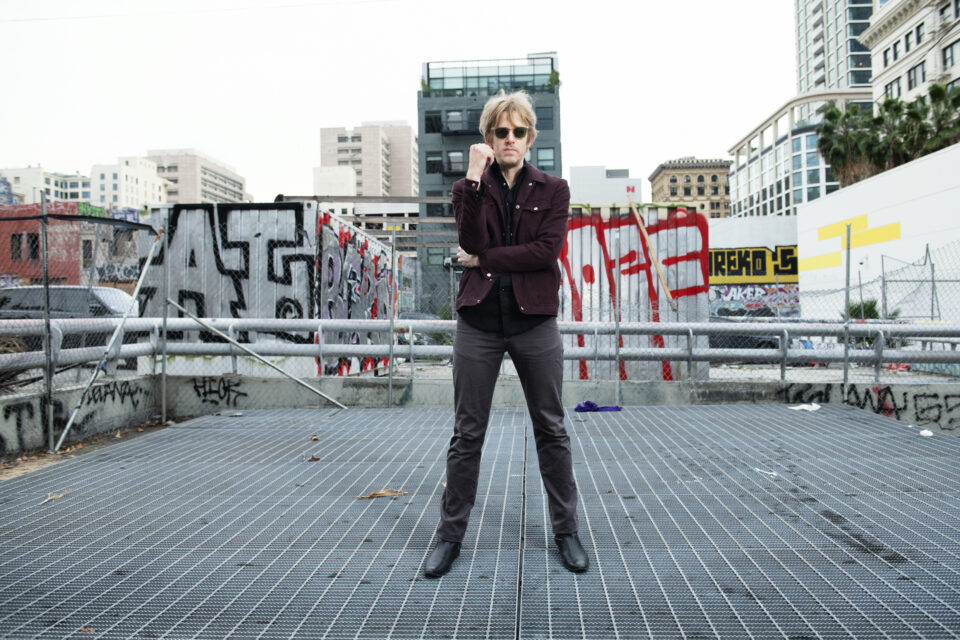
Lucifer on the Sofa has no shortage of chug, as is apparent mere seconds into its opening track. A cover of a 1999 Smog song, “Held” reconfigures the ominous simmer of Bill Callahan’s version into something more visceral and incendiary. “Held” spent time on Spoon’s early 2000s setlists before cycling out of rotation; while brainstorming for Lucifer, Daniel revived it. “I think we did it at the start of a rehearsal one day, just to get us in the mood.” With Daniel on bass and Gerardo Larias on guitar, the results stopped the band in their tracks. “I was like, ‘Wow, this is something else. Maybe we can actually record this. Maybe we’re not just doing an exercise here.’”
“The thrust of where Spoon’s sound comes from has usually been my rhythm guitar. But we got rid of it on Hot Thoughts; we went more toward keyboards, synthesizers, we even used some drum machines. I think I just said, ‘I miss that chug.’”
These epiphanies were not uncommon, as with the unexpected emergence of the central riff of “The Hardest Cut,” which for a while the band referred to simply as the “Texas riff”—less because of its geographic origins than because, as Daniel puts it, “it sounded like Texas.” Eric Wareheim directed the video; he pitched a visual indebted to David Lynch’s disconcerting surrealism and Quentin Tarantino’s queasy, stylish bursts of violence, and Daniel was instantly sold.
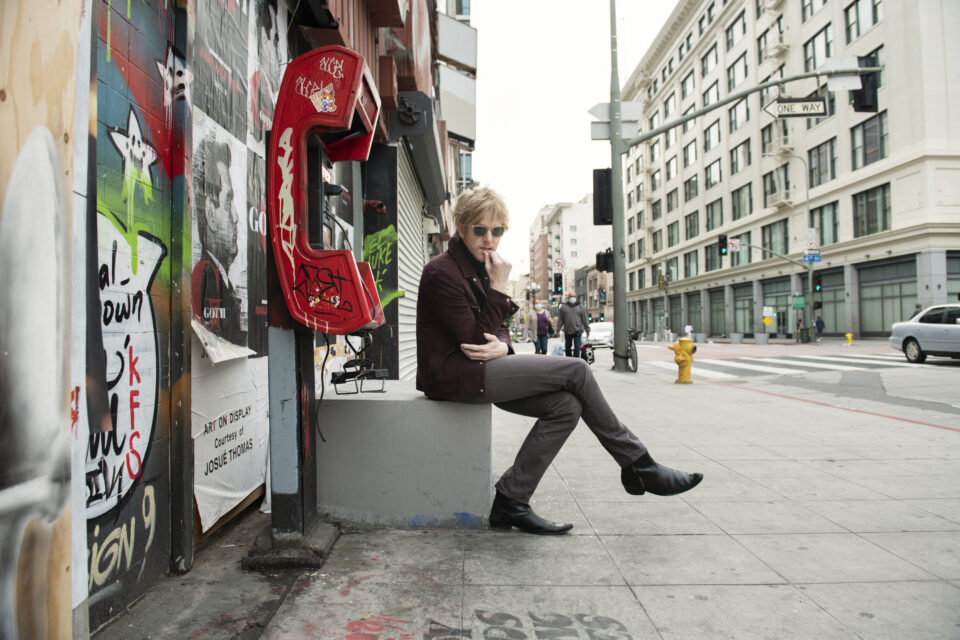
Other Lucifer highlights may not bare their teeth as aggressively, but are no less impactful. “Wild,” the album’s second single, is a blast of catharsis, a likely contender for any future Spoon halls of fame. “My Babe” initially unfurls as a heartfelt, piano-centric love song only to escalate into something more muscular and anthemic. “The Devil & Mister Jones,” a cautionary tale about a charismatic grifter, could effortlessly pass as a long-buried Gimme Fiction cut.
“Artists often want to react a bit against the last thing that they did. It’s sort of a natural tendency.”
While the lengthy recording precipitated a surplus of new material (Daniel estimates the band worked on 40 songs), one song gestated for nearly a decade. “Satellite,” originally intended for 2014’s They Want My Soul, was first recorded with producer Dave Fridmann, but the band wasn’t convinced it was ready for release. “We kind of rushed it into the recording process,” Daniel says. “After that, we started playing it live, and then it got better. And then it got better and better.” The band tinkered with it further (recording one version with John Congleton) before settling on the latest iteration, a straightforward but dazzling affirmation of unconditional devotion.
The patience harnessed in allowing “Satellite” to develop is indicative of the care with which Spoon records and releases music. This is a band deeply mindful of its legacy. Daniel concedes that Spoon deliberately positioned Lucifer as a pivot away from the aesthetic underpinnings of Hot Thoughts: “Artists often want to react a bit against the last thing that they did. It’s sort of a natural tendency.”
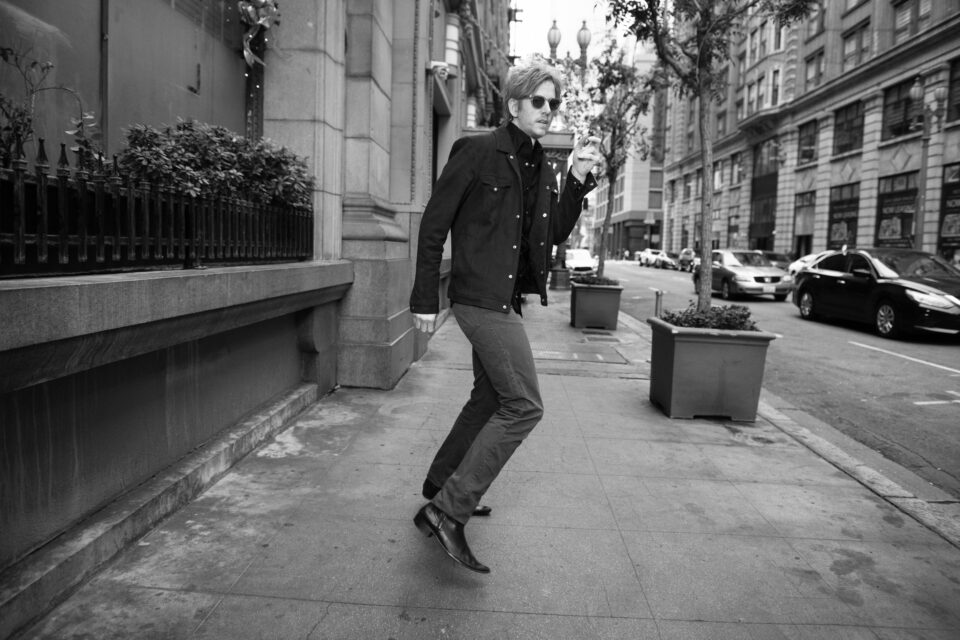
He identifies one such example as Spoon’s evolution from 1998’s A Series of Sneaks to 2001’s Girls Can Tell. 2021 marked twenty years since the release of Girls, and Daniel views it as an inflection point. “Girls Can Tell was definitely a turning point stylistically, and it was a turning point in terms of us being able to put out a record and not feeling like as soon as it came out the wheels fell off the cart.” Daniel notes that interest in Spoon swelled palpably in its immediate aftermath, granting the band a sense of vindication and a much-needed morale boost.
Spoon wanted to capitalize on that momentum with a swift follow-up, releasing Kill the Moonlight just 18 months later. Moonlight is quintessential Spoon, immediately recognizable as their work, but it scrambled the formula in notable ways. “Kill the Moonlight was even bigger,” Daniel remembers fondly, “and a different type of record from Girls Can Tell. Less of a classic pop songwriting type record and more of a scrappier, more new-wave thing. Just a little weirder than the one before.”
“Fuck the algorithm, and fuck that being a way of dictating to people what music they hear.”
If Spoon has observed the trajectory of rock’s increasingly tenuous sway on the zeitgeist, they appear unshaken; the band seems confident about their own vitality, still releasing art with more conviction and craft than could reasonably be expected of a band with 30 years in the rearview. For Daniel, the key to Spoon’s longevity is uncomplicated: “I like the people I play with and I like the people I work with.” He expects that will continue—he’s currently gearing up for Spoon’s spring tour—but is noncommittal about what exactly comes next. “What do you think I should do? Should I make a solo record? Should I produce a band again, or should I do a soundtrack, or should I open an ice cream shop? I don’t know, I’m trying to figure that out.”
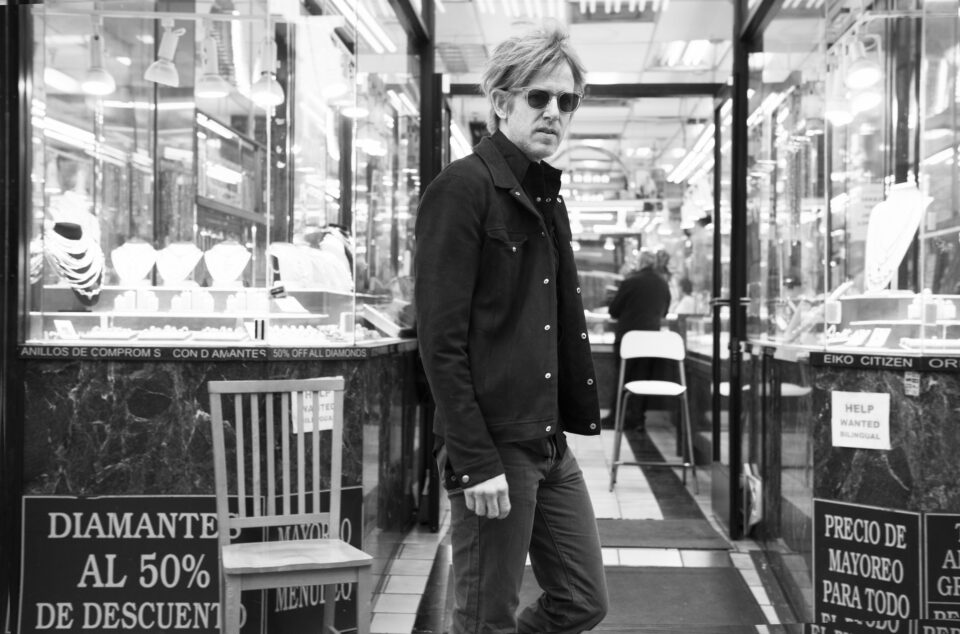
Spoon emerged during the CD era, a culture worlds away from our current one largely governed by viral trends and curated playlists. It’s an evolution Daniel has decidedly mixed feelings about. “Fuck the algorithm, and fuck that being a way of dictating to people what music they hear,” he says, while acknowledging that different sorts of gatekeepers ruled during the 1990s when Spoon clawed their way into the mainstream. Daniel recognizes that good accompanies the bad; streaming feels impersonal, but the ability to Shazam a song, return to it later, and instantly immerse yourself in an artist’s oeuvre makes the barrier for entry lower than ever for prospective fans.
But even if the landscape Spoon returns to bends toward the listener’s convenience, Daniel still sees value in the traditional album format as an artform. “Listen to it all at once, listen to it in the order it was intended,” he suggests to fans digesting it for the first time. And a key mission of Lucifer on the Sofa is to transport you, to make you feel something, not unlike the songs Daniel once discovered on his clock radio. “All I’m trying to do is give people the experience that made my life so much more worth living, the way that I felt about bands and albums when I was growing up, and still do. These little worlds you can escape into. The most important thing I can do is contribute to that tradition.” FL
